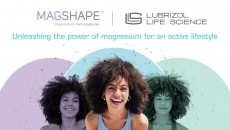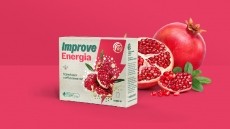EFSA OKs two out of three vitamin E forms
use of mixed tocopherols and tocotrienol tocopherol as vitamin E
sources in food supplements.
But its Panel on Scientific Panel on Food Additives, Flavourings, Processing Aids and Materials in Contact with Food (AFC)concluded there was insufficient data for the safe use of tocotrienols as a supplements precursor.
An upper safe level of 300mg was established in 2003 for vitamin E (as d-alpha-tocopherol) by the Scientific Committee on Food (SCF) while the Joint FAO/WHO Expert Committee on Food Additives (JECFA) has recommended daily consumption levels up to 2mg per kilogram of a person's body weight.
It said other clinical studies demonstrated no adverse effects at levels up to 5mg per kg of body weight.
D-Alpha-tocopherol, one of the forms deemed safe by the AFC, is the major constituent of the naturally-sourced vitamin E that is more bioavailable than synthetic versions and therefore favoured by large segments of the European supplements industry.
Gamma-tocopherol is used in synthetic vitamin E which is more commonly found on the American market.
The judgement "The three preparations, mixed tocopherols, tocotrienol tocopherol and tocotrienols are proposed to be used as sources of vitamin E," AFC stated.
"These sources contain varying amounts of tocopherols and tocotrienols."
Its opinion did not relate to vitamin E itself, which was " outside the remit of this Panel.
The present opinion deals only with the safety and bioavailability of three particular sources of vitamin E, intended for the general population, to be added in food supplements."
It added: "Since the bioavailability and tissue distribution of tocotrienols appear to be different from that of tocopherols and since the specifications of the two tocotrienol preparations of the present opinion do not match the specifications [of a previous opinion], the only registered vitamin E additive which has specification including tocotrienols, safety assessment of these tocotrienol-containing preparations cannot be based on upper limits for vitamin E." It said, in regard to tocotrienol, that softgel capsules were the usual form of consumption and provided up to 1000mg of tocotrienols per day.
This would result in a daily intake of 16.7mg of tocotrienols per kg body weight for a 60kg person - higher than the 5 mg/kg bw/day "frequently demonstrated to be without adverse effects in human studies."
The AFC therefore concluded, "the available safety data are insufficient to conclude on the safety of the proposed use and use levels of the tocotrienols."
The industry faced a crisis some years ago when a tightening of European Union Genetically Modified Organism traceability laws threatened the tocopherols-based natural vitamin E supply chain because of problems determining the non-GM credentials of the soy crops most naturally sourced vitamin E is derived from.
After a period of supply constriction, most major suppliers were however able to get their houses in order and produce the necessary paperwork Market researcher Frost & Sullivan forecast the western European vitamin E market would grow from €72.4m in 2004 to about €105m in 2011.
There are eight forms of vitamin E: four tocopherols (alpha, beta, gamma, delta) and four tocotrienols (alpha, beta, gamma, delta).











